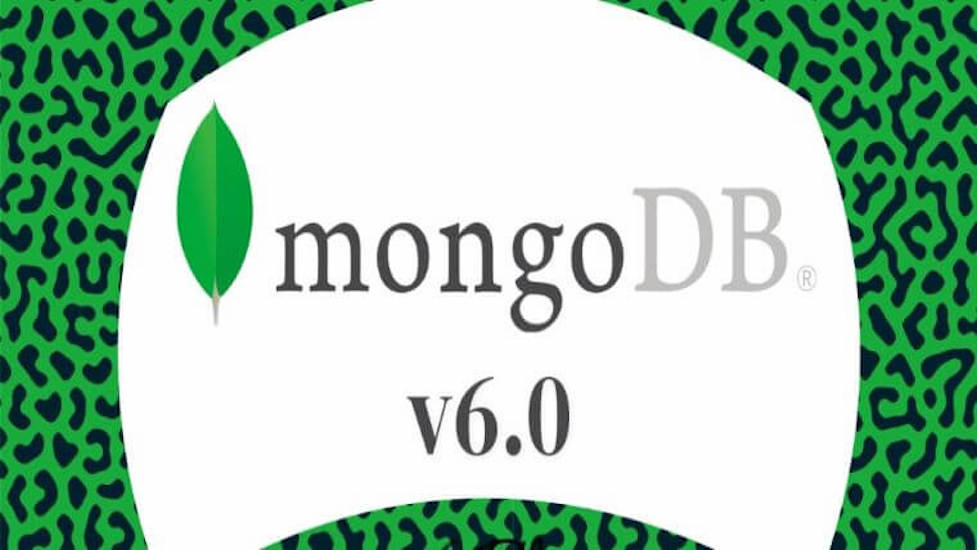
The News: MongoDB announces the availability of MongoDB 6.0. For the full announcement from MongoDB, see the MongoDB website.
MongoDB Announces Availability of MongoDB 6.0
Analyst Take: First announced at MongoDB World a few weeks ago, MongoDB has announced version 6.0 of its core database offering.
MongoDB has moved beyond its initial ambitions of providing a NoSQL alternative to Oracle and now has wider ambitions as a developer data platform. I covered the MongoDB World announcements after attending the event, and my key takeaways from the show were that the company is looking to operate on a wider competitive landscape and start to go head to head with the likes of Snowflake, Databricks, and Cloudera in the data lakehouse space. While I firmly believe that these loftier ambitions are a solid strategic move, this will be a big lift for MongoDB in the quarters ahead. While the company is well placed to make the transition, due to the strong support MongoDB commands in the developer community, MongoDB will need to build on this developer support and build a legion of supporters in the ranks of data scientists to successfully execute the transition.
MongoDB 6.0
Despite its wider strategic ambitions, the company now has a core database product that still needs to evolve. Mongo Db 6.0 is this evolution, with the company establishing a regular cadence of major updates coinciding with the company’s annual conference. The common theme in MongoDB 6.0 is simplification. Rather than forcing customers to deploy a raft of external software and third-party tools, MongoDB has focused on delivering capabilities that enable its customers to develop, iterate, test, and release applications at increased velocity.
MongoDB’s 6.0 release is designed to assist developers to avoid siloed data, complex architectures, time spent on integration, and the need for custom work with tasks such as data pipelines. The key focus areas for MongoDB 6.0 are:
Enhanced support for time series data. Time series data is becoming vital in how modern applications are architected. When collected appropriately, processed, and analyzed, time series data provide a valuable source of actionable insights. First introduced in MongoDB 5.0, time series collections provide a way to handle these workloads without resorting to adding a niche technology and the resulting complexity. In addition, it was critical to overcome obstacles unique to time series data, such as high volume, storage and cost considerations, and gaps in data continuity that appear in edge use cases.
MongoDB has also improved query performance and sort operations in 6.0. A good example is how 6.0 can return the last data point in a series, as opposed to scanning the whole collection, thereby enabling faster reads.
Event-driven architectures. Increasingly, customers are coming to expect real-time, event-driven experiences, and MongoDB has responded.
The MongoDB 6.0 release enhances change streams, adding abilities to elevate streams to the next level. Change streams provide an API to stream changes to a MongoDB database, cluster, or collection, without the high overhead that comes from having to poll an entire system.
Enriched queries. MongoDB’s aggregation capabilities allow users to process multiple documents and return computed results. By combining individual operators into aggregation pipelines, users can build complex data processing pipelines to extract the insights needed. One example amongst the ones outlined in the release notes is $lookup with the company claiming significant performance upgrade, with these extending to as much as a hundredfold in certain scenarios.
Productivity Improvements through Operators. MongoDB 6.0 ushers in a raft of new operators, which are positioned as enabling customers to push more work through the database while spending less time writing code or manipulating data manually. These new MongoDB operators will automate key commands and long sequences of code, freeing up more developer time to focus on other tasks.
Resilient Operations. MongoDB 6.0 introduces initial sync via file copy which, according to the company, is up to 4x faster than other approaches. This feature is available with MongoDB Enterprise Server. MongoDB 6.0 also ushers in improvements to sharding, the mechanism that enables horizontal scalability.
Enhanced Data Security and Operational Efficiency. With MongoDB 6.0, client-side field-level encryption CSFLE now includes support for any KMIP-compliant key management provider. As an emerging standard, KMIP streamlines storage, manipulation, and handling of cryptographic objects.
MongoDB’s support for auditing allows administrators to track system activity ensuring accountability and, while it is important that auditors can inspect audit logs, the content of logs must be protected from unauthorized users due to the sensitive information it may contain. Encryption of the logs will protect the events’ confidentiality and integrity. In addition, if the logs propagate, they stay encrypted.
Queryable Encryption is now available in customer preview. This technology enables customers to run expressive queries against encrypted data and only decode data when it is made available to the user.
Looking Ahead for MongoDB
Ultimately MongoDB 6.0 is hyper-focused on making the lives of developers easier as they handle data. The new capabilities are intended to facilitate development and operations, remove data silos, and eliminate the complexity that accompanies the unnecessary use of third party tools. According to the company, this will translate to less custom work, troubleshooting, and complex architectures. It is too early to say whether this vision will become reality, but what I have taken away from my recent interactions with the company is that MongoDB has a clarity of focus on the developer experience that I don’t see in their competitor, and that can be ultimately turn into significant competitive advantage.
Atlas is becoming a juggernaut as customers look to move their databases to the cloud. This MongoDB 6.0 release further enhances this value proposition and provides a raft of updates that will be appreciated by the developers that form the bedrock of MongoDB’s customer base. The addition of enhanced security features in the MongoDB 6.0 will also be a boon for customers as this is also becoming a key decision criterion when evaluating database technologies.
Disclosure: Futurum Research is a research and advisory firm that engages or has engaged in research, analysis, and advisory services with many technology companies, including those mentioned in this article. The author does not hold any equity positions with any company mentioned in this article.
Analysis and opinions expressed herein are specific to the analyst individually and data and other information that might have been provided for validation, not those of Futurum Research as a whole.
Other insights from Futurum Research:
MongoDB World – MongoDB Going All in on the Cloud and Platform
Oracle Database API for MongoDB: Running MongoDB Workloads on Oracle Cloud Infrastructure
MongoDB Doubles Down on Core Offerings and the Cloud
Image Credit: DEV Community
The original version of this article was first published on Futurum Research.
Steven Dickens is Vice President of Sales and Business Development and Senior Analyst at Futurum Research. Operating at the crossroads of technology and disruption, Steven engages with the world’s largest technology brands exploring new operating models and how they drive innovation and competitive edge for the enterprise. With experience in Open Source, Mission Critical Infrastructure, Cryptocurrencies, Blockchain, and FinTech innovation, Dickens makes the connections between the C-Suite executives, end users, and tech practitioners that are required for companies to drive maximum advantage from their technology deployments. Steven is an alumnus of industry titans such as HPE and IBM and has led multi-hundred million dollar sales teams that operate on the global stage. Steven was a founding board member, former Chairperson, and now Board Advisor for the Open Mainframe Project, a Linux Foundation Project promoting Open Source on the mainframe. Steven Dickens is a Birmingham, UK native, and his speaking engagements take him around the world each year as he shares his insights on the role technology and how it can transform our lives going forward.


